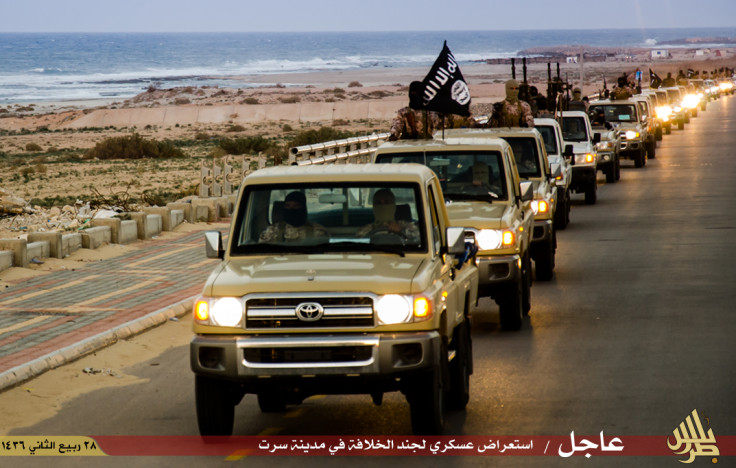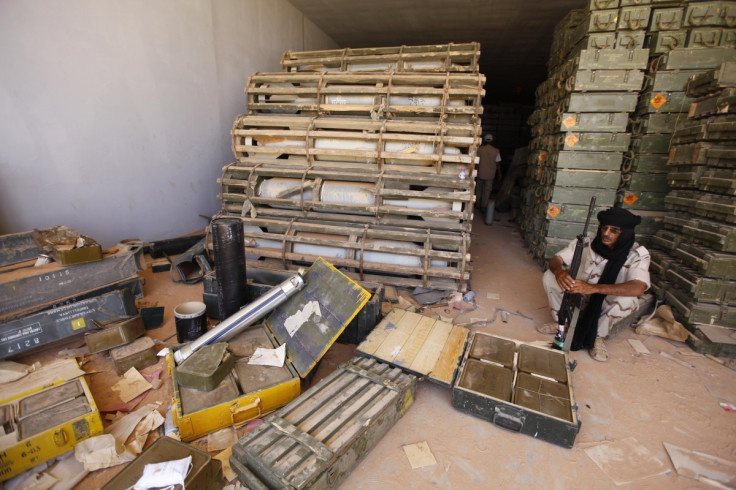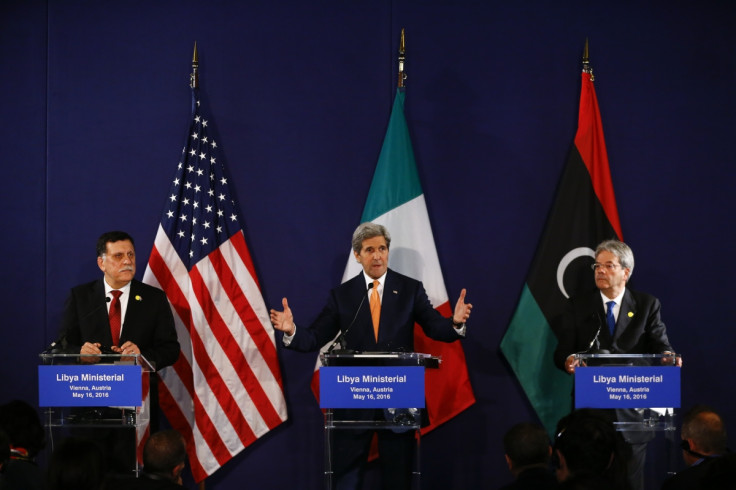'Huge risk' weapons will fall into Isis hands as UK and US push to lift arms embargo in Libya

There is a risk military hardware could fall into Islamic State (Isis) hands, as the international community primes itself to lift a UN arms embargo in Libya and bolster the fightback against the group, experts warned on Wednesday (18 May).
Given the track record of arms proliferation in the North African nation since Libya's 2011 revolution – the country has become a hub for weapons and munitions smuggling across the region – monitors are warning that the international community could be courting danger as it looks to relax controls.
"It is always going to be a huge risk that they fall into the wrong hands. There should be extreme caution involved in doing this, given the political and security landscape in Libya in the last few years," Nicolas Florquin, research co-ordinator at the Small Arms Survey, told IBTimes UK.
"Five years after the revolution there is very little success in containing proliferation of arms. You just see how much there is to be done in this area. When you have these military grade weapons available so easily, it just gives you an indication of the challenges there," he added.
Damning reports by the United Nations have shown that despite an arms embargo on Libya since 2014, not only have armoured personnel carriers, jets and helicopters arrived in the country but weapons from inside have been illegally trafficked to terror groups, including Isis (Daesh) in neighbouring countries and beyond.
The UN is currently investigating the arrival of several Mi-24 helicopters in Libya, a contravention of the arms embargo, plus the recent transfer of four MiG-21F jets to Tubruq, believed to be from Egypt.

A March report showed that commercially bought shotguns of a kind used in Isis executions have been smuggled to Tunisia and Egypt, along with other arms and munitions. Materials also trafficked into Syria, Algeria, Chad, Nigeria, Mali and Sudan have reached Al-Qaeda in the Islamic Maghreb, people traffickers and al-Mourabitoun.
The UK government and its international partners have said they want to make a targeted case for Libya's Government of National Accord to be exempted from the UN embargo. The resulting Vienna Accord places the onus on the new government in Tripoli to make its own case to the UN for safeguards against proliferation. The weapons, small arms and ammunition would be placed in the hands of the newly created Libyan presidential guard.
Libya-based analyst Mohamed Eljahr, anon-resident fellow at the Atlantic Council Centre for the Middle East, believes the guard is a poorly defined military force and explained the body is tasked with guarding government buildings, not with fighting Isis, the stipulated purpose of weapons to be exempted from the embargo.

Eljahr said there was also a real possibility the weapons would not be used against IS, but would instead continue to fuel the violence in Libya's civil war. "If these weapons, instead of being used against the Islamic State, are used by Libyans fighting each other... how is that helpful to Libyans?" he said.
"There is a huge trust issue, there is huge political disagreement between these different factions," he added.
As militias from Libya's rival political factions mass on Isis's stronghold in the coastal city of Sirte, the loosely formed anti-Isis coalition has three rival command centres. Clashes, not with Islamic State but between the differing brigades, have already taken place in the deserts to the south.
Eljahr explained that, ultimately, the arrival of weapons in the country to one group over another could further polarise the conflict.
© Copyright IBTimes 2025. All rights reserved.






















